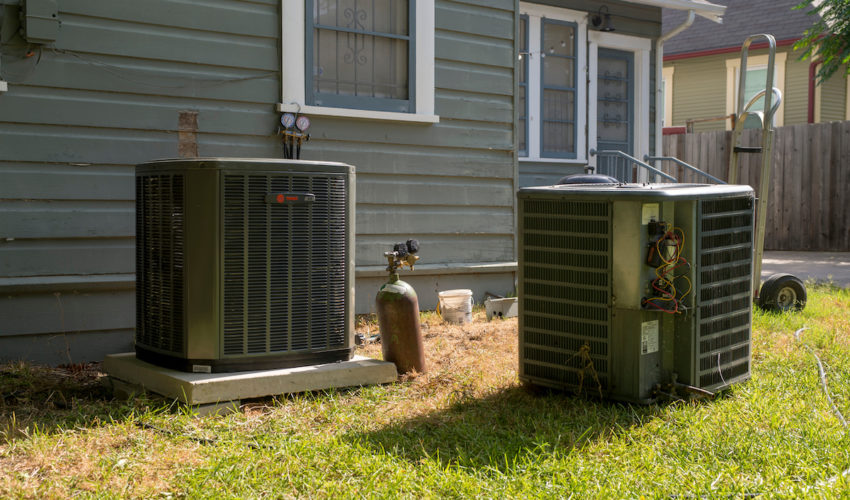When it’s hot outside, we know folks in San Antonio, Converse, Schertz, Universal City, and all over our area, just want an air conditioner that works. And if your A/C isn’t working, you’d like to keep your costs as low as possible to be cool again.
Deciding whether to invest money in a repair or bite the bullet and buy a new AC unit can be a tough decision. Here are the top things to consider when deciding to fix or replace your air conditioner.
Avoid Doomsday Advice
There’s a common talking point in the industry — often referred to as the $5,000-rule — that says if the age of your HVAC system multiplied by the cost of the repair is more than $5,000, replace the system. As technicians, we often hear that during trainings from manufacturers. There’s a time and place where that advice may be true but in our experience, it’s just a high-pressure sales tactic. There are better ways to decide what’s right for you, so don’t give up hope.
If You’ve Tried A Band-aid Fix and Something New Arises, It Might Be Time To Buy
If you’ve had trouble with a major component before and it acts up again, that may be a sign that other problems are about to arise. Or, if you’ve repaired a major component before and a problem with another part comes up, it may mean you don’t want to put more money into your existing system.
Problems with The Indoor Coil
The indoor coil is the part of your HVAC system that air moves across to get chilled before the fan motor pushes that cold air into your house. The coil is a major component and can be expensive to replace.
Let’s say you’ve managed problems with the coil in the past — such as a leak where you have to keep adding refrigerant — and then a new problem arises with your fan motor. You may not want to bother putting $800 towards replacing the fan motor because you will have to spend a few thousand or more on a new coil sometime soon down the road. It might be time to think about putting your money towards a new system.
Problems with The Compressor
The compressor is the heart of the unit. It’s the motor that pumps the refrigerant in your system. A tech can diagnose an aging compressor if it starts giving you trouble or making lots of noise. Something called a “Hard Start Kit” can help a compressor that’s having trouble starting. It may buy you a few additional years, but know it’s a solution that’s really a band-aid for something that’s coming apart internally.
If you’ve already taken steps to stretch out the life of your compressor, and then something else goes wrong — maybe a freon leak or trouble with a fan motor — it may not make sense to spend more money on your existing system.
Other Factors to Consider
Although the age of your system should be factored into your decision between repairing or replacing, it shouldn’t be the sole determining factor–especially since well-cared for systems can extend well beyond the decade mark. If you haven’t traditionally had any problems and a fan motor, for example, needs replacing, even if your unit is over ten years old, just replace the fan motor! Your unit may still have a lot of life left. If you have a history of problems or other odd things have come up, you might have a harder choice to make. Considering how often your system has been in need of minor repairs within a period of two to three years, whether your warranty is still valid, and potential energy efficiency savings can help you make a sound decision. Better yet, determine a cost threshold for repairs based on all of these conditions and, if it exceeds it, consider replacing the unit instead.
Be Smart About Repairs To The Heat Exchanger in a Gas Furnace As Well
Though your A/C might be your top priority in the summer, you should also be mindful of how you address furnace repairs/replacements. Carbon monoxide is nothing to mess around with. It’s an odorless and potentially deadly gas. If you have a very old furnace or find yourself in need of a repair to your furnace, before you invest in new work make sure there’s not a carbon monoxide leak in your system. You wouldn’t want to invest in a minor repair if there’s a bigger safety and expense threat lurking.
The Final Word
Here’s the thing: anything can be fixed. But a fix may or may not be the best long-term use of your funds. We think it’s worth it to weigh all the factors so you can make the best decision about where to spend your money. Whether you ultimately decide replacing or repairing is right for your system, we at North East Air Conditioning, Heating & Plumbing are happy to help.


